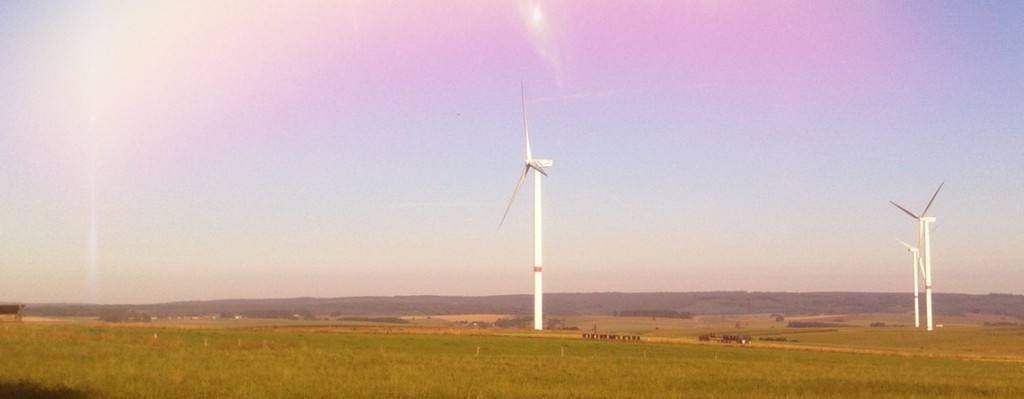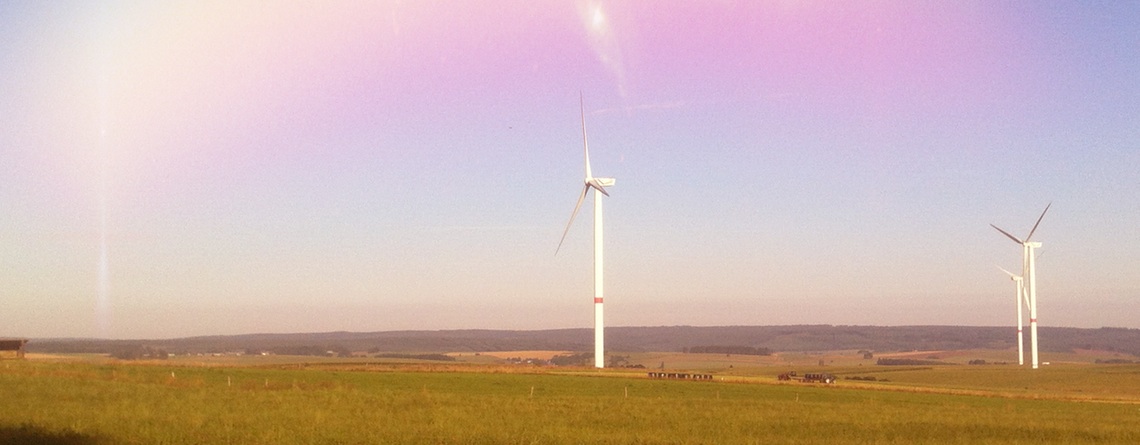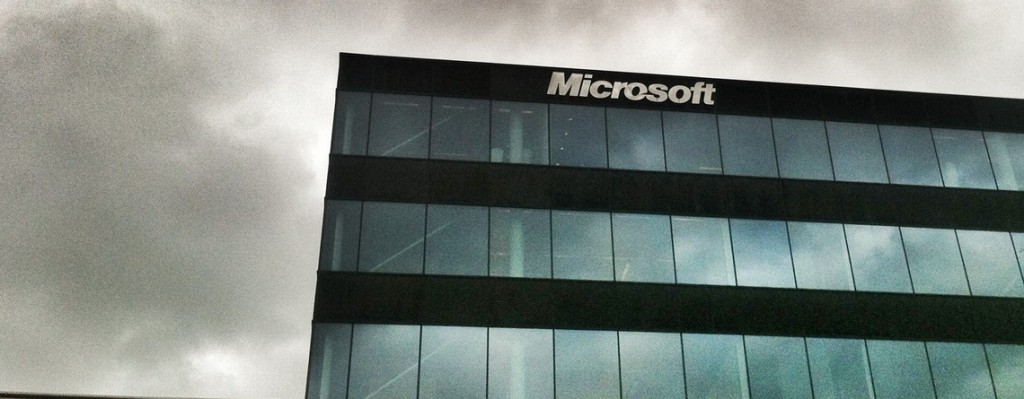I need to get this off my chest, then I’ll stop with the rants… it’s just been bugging me for a long time.
You see.., I think we’re missing the point. And not by a little bit either. We all know, or should know by now, that the way we live in a non-sustainable society. Meaning, it will end, probably in a very dramatic way.
 Social Business is probably the best opportunity we have to create awareness and generate responsibility. People need to live more consciously, more awake. But, we’re missing the point and with that, a golden opportunity.
Social Business is probably the best opportunity we have to create awareness and generate responsibility. People need to live more consciously, more awake. But, we’re missing the point and with that, a golden opportunity.
Wind Turbines
A metaphor then: You must have noticed these huge, ugly, noisy mastodons, polluting our horizons and beautiful views.
Although their net-energy is positive, I can’t help thinking about the motivation for building these things. In Holland, in the Flevopolder, farmers get paid to put them up, it’s a hideous sight. The landscape is littered with hundreds of turbines. Different in size and strewn all over the place. There is no ecological motivation behind this.., heck, there is no ecological motivation behind the whole Flevopolder, it’s all economical.
Where I live now (the south of Belgium), a councilman was pushing the placement of a wind farm nearby. Although he didn’t have the authority, and no wind study was made for the location, he almost succeeded in starting the project. Anything else than personal gain is difficult to imagine.
Focussing on generating and storing energy locally (in your home or neighbourhood) is much, much more sustainable. But that would mean, giving up grid connected, chargeable control. And that’s not going to happen.
Supermarkets
Talk about a prominent place in society. The biggest supermarket chain in Holland (again Holland? Yes, I’m Dutch, remember?) has replaced it’s “Organic” label for “Pure & Honest”. Very smart, “Organic” is a protected label in The Netherlands. You cannot put it on a label unless it really is 100% organic.
Now that ‘they’ don’t have to worry about the label, they can promote “Pure & Honest” as “with extra care for people, animal, nature or environment produced, grown or bought”. This is, of course, not true.., sadly. All sorts of taste enhancers, E-numbers and animal unfriendly, bio industry elements are found in the products.., and that’s just the things we know about.
They pretend to be social, but they’re really not. Despite their obvious responsibility.
Social Business
By now, I’m sure that many companies implement Social Business to gain an economical advantage. And yes, that’s important. It’s why you run a business, to make money. We have to please the stake- and shareholders.
And companies that sell “Social Business” need to turn a profit too. So, the one is sustaining the other, economically speaking. Both missing the point on real sustainability and societal responsibilities.
I’m generalising here. I’m sure there are those that really do have the individual in mind. That believe changing the every day goings on of employees could make them happy and more engaged in the company, resulting in all sorts of benefits for that company.
And yes, “happy” and “engagement” are quantifiable emotions. I’m sick of people saying these are unrealistic, unmeasurable and non-business terms. They are very real, they are very human, and they also have a very real impact on a business. A happy employee is an engaged employee, an engaged employee is a productive employee. H+E=P
One simple way to quantify this is to just ask.
Talk to them, find out what they think about the company and how it could change for the better.
Labelling
As with the “organic” label in Europe.., the label “Social Business” should be protected. Social Business Consultants should be certified through an open source qualification program. Proven knowledge and motivation.
“Social Business” is hyping at the moment and companies are sticking the label anywhere it can stick. Either, so they can sell it, or so they can claim to be one. But, SocBiz isn’t a hype, it’s a very real evolution. And if you don’t get it right, say you only focus on a piece of technology, you won’t get there.
If becoming a Social Business prevents your business from expiring, than you can’t just focus on the economical gain. Heck, economical gain and a higher ROI are (very beneficial) by-products of a successful change. They’re part of the plan of course, but not the driving force.
People are.
Mea Culpa
I’m a Social Business Consultant. And when I need to advice a company, the bottom line is, of course, the unavoidable issue; the ROI has to be met.
But, I just love the philosophy behind the whole thing. I even consider myself a Corporate Rebel and I truly believe Social Business can have a (very) positive effect on society. But in order to that, we need to focus on the right elements of Social Business.
Call it societal gain over economical gain. I know.., I know. It’s so scary, letting the reigns loosen up a bit, transferring responsibilities, trust employees or citizens to do the right thing, very scary. But, if we keep fooling them, and we keep fooling ourselves, then we’ll simply won’t get there. We’ll simply never be able to create a (truly) sustainable society.
And if we can’t do that, there is only one other possible outcome.., societal collapse. And it wouldn’t be the first time either.., every other society before us has collapsed, no exception, none have survived the Test of Time and the Trials of Men.
We now have the knowledge and the technology to turn it around, to do it right.., just for once.
Don’t say I didn’t warn you…


